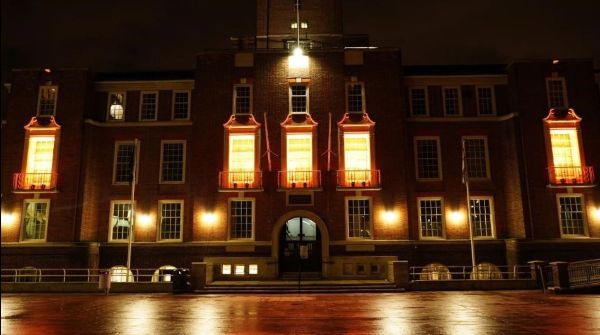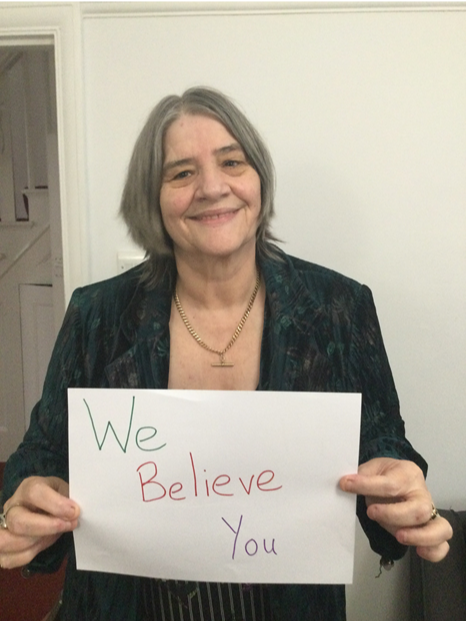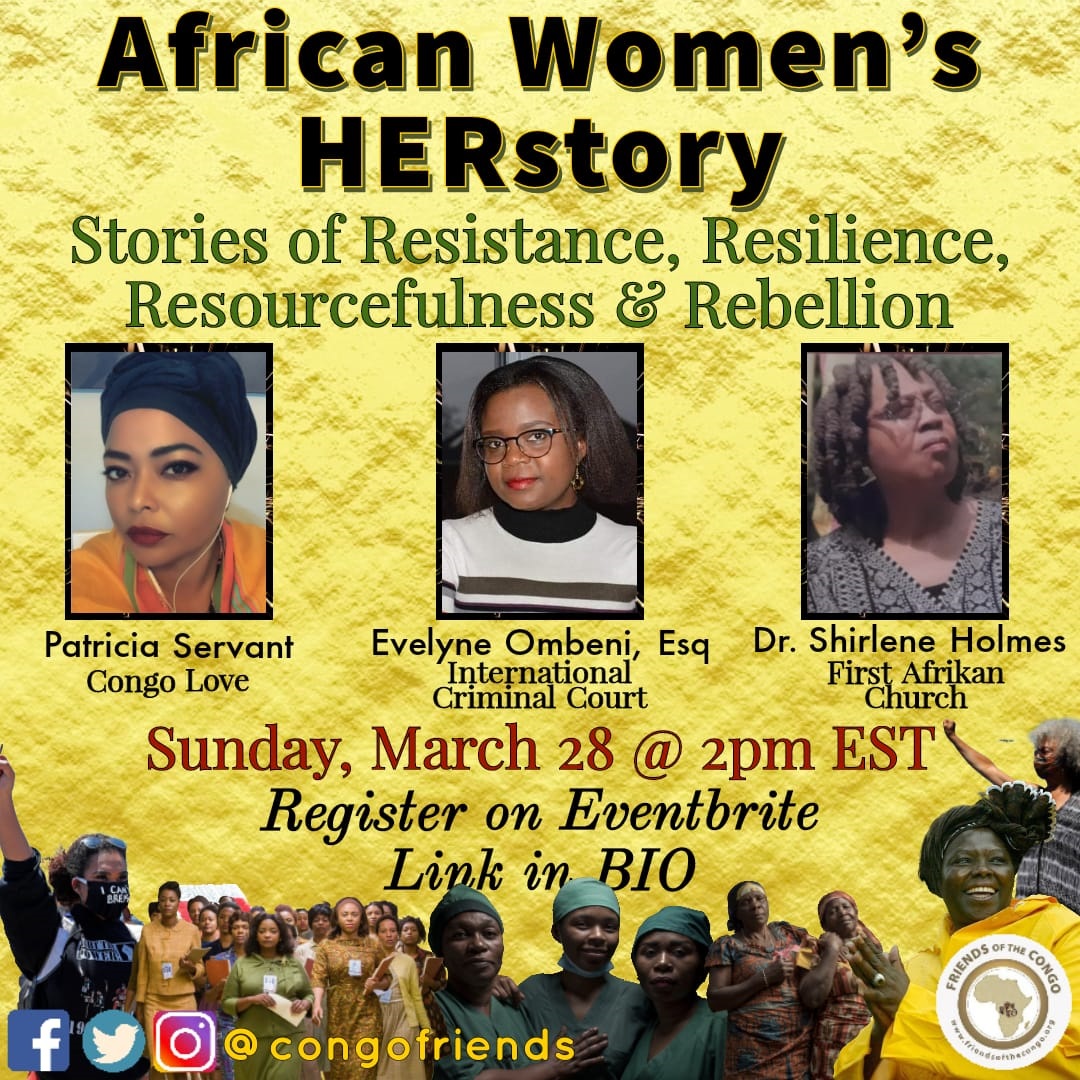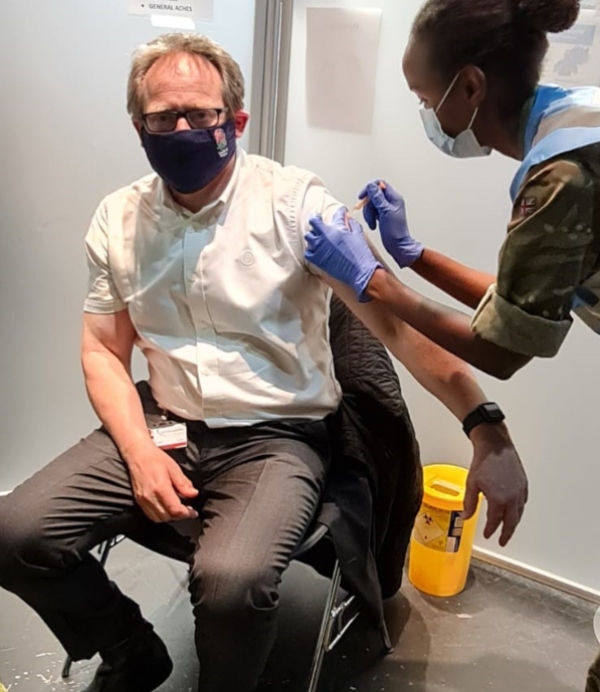<iframe width="560" height="315" src="https://www.youtube.com/embed/0mKYnTZvIUM" title="YouTube video player" frameborder="0" allow="accelerometer; autoplay; clipboard-write; encrypted-media; gyroscope; picture-in-picture" allowfullscreen></iframe>
Ubuntu-it's a word describing an African worldview, which translates as "I am because you are," and which means that individuals need other people to be fulfilled. And that is what this blog is all about.My contact details are: Ayoub Mzee- Tel +447960811614, email: swahilidiaries@yahoo.co.uk. Alternatively you can watch my program- swahili diaries on BEN TV SKY 184 or www.bentelevision.com every week Tuesdays at 10pm and Sundays at 10AM. Enjoy News stories in Photographs


Wednesday 31 March 2021
First-Ever West Africa Joint Ops Exercise Links Counterterrorism Investigators in Three Nations
 U.S. Department of State <usstatebpa@public.govdelivery.com>To:swahilidiaries@yahoo.co.ukFri, 26 Mar at 15:37
U.S. Department of State <usstatebpa@public.govdelivery.com>To:swahilidiaries@yahoo.co.ukFri, 26 Mar at 15:37
Tuesday 30 March 2021
|
|
|
|
Monday 29 March 2021
Africa Signs Historic Agreement with Johnson & Johnson for 400 Million Doses of COVID-19 Vaccines
29 March 2021 — In a historic COVID-19 vaccine procurement Agreement signed on 28 March 2021, all African Union Member States, through the African Vaccine Acquisition Trust (AVAT) set up in November 2020 under the African Union chairmanship of H.E President Cyril Ramaphosa, President of South Africa, will have access to 220 million doses of the Johnson & Johnson single-shot COVID-19 vaccine, with the potential to order an additional 180 million doses.
Most of the supplies will be produced at the giant pharmaceutical manufacturing plant in South Africa operated by Aspen Pharma. The vaccines will be made available to African countries through the African Medical Supplies Platform (AMSP), over a period of 18 months.
Meanwhile, H.E Cyril Ramaphosa will later today tour the facilities of Aspen Pharma in Port Elizabeth with Johnson & Johnson Executives to inspect preparations for the production of vaccines. The production of vaccines at the facility will be a massive boost for jobs in South Africa.
The transaction was made possible through the US$2 billion facility approved by the African Export-Import Bank (Afreximbank), who also acted as Financial and Transaction Advisers, Guarantors, Installment Payment Advisers and Payment Agents.
The successful conclusion of the Agreement was made possible by the support of the United Nations Economic Commission for Africa (ECA) and the United Nations International Children's Emergency Fund (UNICEF), who supported the negotiation process with Johnson & Johnson. UNICEF is also acting as procurement and logistics agent. The African Vaccine Acquisition Task Team (AVATT) was supported in terms of advice on various aspects by the World Health Organization (WHO).
Prior to the conclusion of the Agreement with Johnson & Johnson, African Member States were asked to make pre-orders for the vaccines and many countries showed strong preference for this particular vaccine. The countries will be able to purchase the vaccines either using cash, or a facility from Afreximbank. Most countries have already completed their pre-orders.
The direct acquisition of vaccines by the African countries through the AVATT initiative is part of the continental objective to achieve a minimum of 60% immunization of the African population, in order to eliminate COVID-19. This target is in line with targets set in other regions such as Europe and the United States. The international donor community has pledged to provide 27% through the COVAX Initiative (which is coordinated by Gavi, the Vaccine Alliance, the Coalition for Epidemic Preparedness Innovations (CEPI) and the WHO), whilst Africa must find the rest. AVATT and COVAX work very closely together.
“This Agreement is a significant milestone in protecting the health of all Africans. It is also a powerful demonstration of African unity and of what we can achieve through partnership between the state sector, the private sector and international institutions that puts people first,” said President Ramaphosa.
Professor Benedict Oramah, President of Afreximbank, said: “Afreximbank is proud to be associated with this historic and collective effort. In the midst of a very tight COVID-19 vaccine market, we are highly honoured to have been given the opportunity by the African Union to facilitate this impactful transaction under the auspices of the Africa Vaccine Acquisition Task Team (AVATT). Acting as Financial and Transaction Advisors, Guarantors, Installment Payment Facility Arrangers and Payment Agents, we look forward to beginning the deployment of the US$2 billion Vaccine Procurement facility approved by the Bank's Board of Directors towards assisting the continent to begin to rid itself of the pandemic and rebuild its economy. This financing will support Intra-African Trade and we have already commenced engagement with our financial partners to secure the additional funding that would support procurement if Africa decides to procure the additional 180 million doses.
Dr. John Nkengasong, Director of the Africa Centres for Disease Control and Prevention (Africa CDC), said: “The Africa CDC recommended to the African Union that a minimum of 750 million Africans (60%) must be immunized if we are to contain the spread of COVID-19. This transaction enables Africa to meet almost 50% of that target. The key to this particular vaccine is that it is a single-shot vaccine which makes it easier to roll out quickly and effectively, thus saving lives.
Mr. Masiyiwa thanked H.E. Moussa Faki Mahamat, Chairperson of the African Union Commission for his tremendous support to the work of AVATT. He also thanked H.E Amira Elfadil Mohammed Elfadil, Commissioner for Social Affairs, Africa Union Commission, for her contributions to AVATT. Finally, Mr. Masiyiwa expressed his appreciation to the staff of Afreximbank, the Africa CDC, ECA and UNICEF for their extraordinary effort over the last three months in putting this Agreement together.
– Ends –
Sunday 28 March 2021
Briefing With Bureau of International Organization Affairs Senior Bureau Official, Ambassador Erica Barks-Ruggles On Secretary Antony J. Blinken’s Upcoming Virtual Travel to the United Nations
 U.S. Department of State <usstatebpa@public.govdelivery.com>To:swahilidiaries@yahoo.co.ukFri, 26 Mar at 22:37
U.S. Department of State <usstatebpa@public.govdelivery.com>To:swahilidiaries@yahoo.co.ukFri, 26 Mar at 22:37You are subscribed to Press Releases for U.S. Department of State. This information has recently been updated, and is now available.
03/26/2021 06:13 PM EDTAmbassador Erica Barks-Ruggles, Senior Bureau OfficialBureau of International Organization Affairs
Via Teleconference
MS PORTER: Thank you for joining us this afternoon for a quick call to outline the Secretary’s upcoming virtual visit to the United Nations and our mission in New York. This is an on-the-record press preview, but the contents of this call are embargoed until the end of the call.
Joining us today is a senior bureau official for the Bureau of International Organization Affairs, Ambassador Erica Barks-Ruggles. Many of you already know the ambassador, a career Foreign Service officer who joined the bureau on January 20th. From January 2015 to March 2018, she served as our ambassador to Rwanda, and previously to that in a series of distinguished roles, including at the NSC, as a deputy assistant secretary of state for Democracy, Human Rights, and Labor, and as the deputy to the U.S. Permanent Representative to the United Nations.
The ambassador has kindly agreed to summarize for us the Secretary’s agenda for Monday and put them in the context of the administration’s multilateral re-engagement strategy. After the ambassador’s comments, we will have time for a few of your questions.
With that, Madam Ambassador.
AMBASSADOR BARKS-RUGGLES: Great, thank you very much. As you know, the United Nations – the United States is re-engaging with the United Nations to address challenges that require cooperation between and among nations, and next week’s virtual visit by Secretary Blinken is the latest marker in that effort and comes as the United States nears the end of its month-long presidency of the Security Council this March.
The timing is particularly good for the Secretary to make this visit. Not only is the administration working to reanimate the full range of U.S. engagement with the UN, but the particular topic – Syria – being addressed at the Security Council on Monday is one that can truly benefit from renewed international attention.
I’m going to go through the visit in a minute, but before discussing elements from the visit, I want to highlight one very important thematic element of the administration’s return to multilateral venues, and that is tackling the continued global threat posed by systemic racism and racial discrimination.
The President, the Vice President, Secretary Blinken, and the Ambassador to the United Nations Linda Thomas-Greenfield have all spoken forcefully and passionately about this challenge. If you have not had the opportunity yet to watch Ambassador Thomas-Greenfield’s March 19th remarks made in the UN General Assembly, I highly recommend you do so. They’re incredibly powerful, personal, and moving.
The United States has made combating racism the center of global human rights conversations in a number of ways, including recently at the Human Rights Council at the 46th session, which concluded earlier this week. There we led an effort to produce a joint statement on the long shadow cast by historical racial inequities. We succeeded in securing 156 member-state signatures to that statement.
Now, I thought I would start by – today by walking you through the Secretary’s schedule on Monday to give you a flavor of his activities. It’s a short visit this time, and there’s a great deal happening in the multilateral universe, as you know.
We’ll begin with a town hall conversation with the staff at our mission in New York and Ambassador Linda Thomas-Greenfield. Next, the Secretary will then chair the UN Security Council’s meeting on the humanitarian situation in Syria. His appearance in the council is timely, given that the mandate for the UN cross-border humanitarian assistance mechanism will lapse on July 11th and needs renewal.
In his remarks, the Secretary will underscore that this mechanism must be renewed and expanded in order for the UN to meet the lifesaving – life-sustaining and -saving needs of millions of Syrians.
Later in the day, the Secretary will have a chance to meet virtually with Secretary General Guterres. This will be their third discussion in two months, a testament to the close working relationship that they are building. There we’ll be discussing a wide range of global challenges, from Ethiopia to Burma, from COVID to climate change. We will have a readout of the Secretary’s call with the secretary-general shortly after its conclusion on Monday morning.
We will also provide a readout of the Secretary’s subsequent virtual meeting with the president of the UN General Assembly, Ambassador Volkan Bozkir, who is from Turkey.
At 3 p.m., the Secretary and Ambassador Thomas-Greenfield will conclude the visit by participating in a press briefing hosted by the New York Foreign Press Center for credentialed members of the foreign press, and that will be livestreamed at FPC – for Foreign Press Center – .state.gov.
With that, I would be happy to take a few of your questions.
OPERATOR: Ladies and gentlemen, if you wish to ask a question, please press 1 then 0. Before you begin speaking, I will say your line is open. Once again, if you wish to ask a question, please press 1 then 0, and then wait for acknowledgement that your line is open.
Please, go ahead.
MS PORTER: Let’s go to the line of Matt Lee, please.
QUESTION: Hello.
OPERATOR: Your line is open, sir.
QUESTION: All right. Can you hear me? Hello?
MS PORTER: Yes.
QUESTION: Yes. Hi, Ambassador. Good to talk to you again. Listen, this isn’t directly related to the subject that you have mentioned, but it is related to the UN. And I wanted to know if – and I realize you guys don’t like to preview any big announcements or anything like that, and I’m not suggesting there are any. But the administration has already joined the – rejoined the WHO and said it’s going to – wants to rejoin the UN Human Rights Council as a full member, an observer. I’m just wondering about UNRWA and UNESCO, two other UN organizations or agencies that the administration has withdrawn from. Is anything on the horizon for either of those two? Thank you.
AMBASSADOR BARKS-RUGGLES: I don’t have anything to announce for you today on UNESCO or on UNRWA. I appreciate your drawing attention to the fact that we are running for a seat on the Human Rights Council, and we are looking forward to our return there.
We are also fully engaging with a number of other UN bodies. As you may be aware, we are looking to return an American voice to the UN Committee on the Elimination of Racial Discrimination, otherwise known as the CERD. Our nominee for that crucial body is Professor Gay McDougall, who is a lifelong globally renowned voice on human rights, equity, and dignity who grew up in the Jim Crow South and was active in the Civil Rights Movement here in the United States and in the anti-apartheid movement in South Africa. She was the first American to ever serve on the CERD, and we’re happy to nominate her to return to this important position to help us in our efforts to combat racism globally. And we look forward to having her hopefully rejoin that body.
MS PORTER: Let’s go to the line of Simon Lewis, please.
OPERATOR: Your line is open.
QUESTION: Hi, Ambassador. Thanks for doing this. Firstly, just a couple of quick questions. You mentioned the renewal of the mandate, humanitarian mandate on Syria, and renewing it but also expanding it. I’m wondering, what would expansion look like? Are there any particular things that you guys are looking for to try to expand that, like any specifics you can preview that you’re hoping to achieve with this virtual visit?
And secondly, you also – you mentioned you’ll be discussing Burma. Burma is going to be discussed. I wonder, does the administration support a Security Council resolution on Burma, and what specifically would you want a Security Council resolution to include on Burma? Thank you.
AMBASSADOR BARKS-RUGGLES: Great. Thanks, Simon. On Syria, just a couple of pieces on that. We continue to be a leader on the Syrian humanitarian response. We’re the single largest humanitarian donor to the Syrian people, providing $12.2 billion in humanitarian assistance since the conflict began 10 years ago. That includes 141 million in response to COVID.
On the discussion that’s coming up on Monday on the humanitarian situation, the humanitarian situation – I don’t have to tell any of you – in Syria is dire. It’s been exacerbated by the spread of COVID, especially in crowded camps where it’s impossible to have social distancing; maintaining hygiene is extremely difficult; there’s not enough PPE; medical care is inadequate. And the UN and international NGOs are already very severely challenged in providing this humanitarian assistance to Syrian civilians in need, especially those in northwestern and northeastern Syria who are jammed up against the border.
Our intent is to keep the last UN-approved border crossing – there’s only one that’s still approved into Syria – open and to ensure efficient and effective delivery of humanitarian assistance to those who are in those areas. We believe and will oppose any efforts by regime supporters, including Russia, to close that border crossing. We believe that we need to step up multilateral diplomatic efforts at the Security Council to renew and expand the mandate for border access, including restoring the northeast border crossing. And we’re in close consultation with our allies, and we’re also consulting with Russia and China at the UN to try and find a formula that keeps the humanitarian aid flowing to those who are desperately in need in that area.
Sorry, on Burma. I apologize. You had asked me about Burma as well. Burma has been a subject of much discussion, as you all know, at the Security Council over the last – the course of the last month. I think Linda Thomas-Greenfield, our ambassador there, has spoken out forcefully on this and passionately in her statements to the General Assembly, and I believe that we will continue to have discussions about how we can try and work together as an international community to return to democratically elected government that represents the will of the Burmese people.
The Burmese people have been incredibly brave, incredibly courageous in their efforts to peacefully return their country in the face of violence from the military, to peacefully return their country to a democratic path. And we will continue to do everything we can to try and support those efforts in the UN system.
MS PORTER: Let’s go to the line of Pamela Falk, please.
QUESTION: Hi.
OPERATOR: Your line is open.
QUESTION: Line is open. Hi, it’s Pamela Falk, Ambassador. Thanks for doing this and we’re looking forward to Monday. My question is a follow-up on Syria. You mentioned some discussions with Russia and China. Is there anything you have on Russia making – making sure that Russia does not veto this resolution? Do you have any commitments? You said you’re working with them. What are you doing to make sure this sort of high-stakes meeting with Secretary of State Blinken doesn’t end up with a veto? Thank you.
AMBASSADOR BARKS-RUGGLES: Well, the renewal will come in July. So we have some time. And those conversations are ongoing and continuing. I don’t think it would benefit anybody for us to get into the – into the back-and-forth of diplomatic discussions. And we’ll continue those discussions as we look for the renewal of that border crossing and the vital humanitarian assistance that flows across it in July.
MS PORTER: Let’s go to the line of Will Mauldin.
QUESTION: Hi, thank you so much, Ambassador —
OPERATOR: Your line is open.
QUESTION: Hi, Ambassador. Thank you so much for having this. I wanted to ask: This administration seems to have a much higher regard for international organizations and the UN, but Secretary Blinken is planning to attend this only virtually as I understand it. Wouldn’t it send a stronger message of support for the international community if he went in person? It’s just a trip to New York. It’s not international travel. Secretary Blinken’s from the New York area, and all of us enjoy traveling to New York as well. Thanks.
AMBASSADOR BARKS-RUGGLES: Well, I’m sorry that the press corps can’t get a trip to New York out of this. I think the Secretary would love to be able to travel to New York, but the Security Council is meeting virtually itself right now. And that is because the Security Council chamber is not adequate to provide the requisite social distancing precautions that have been recommended. And of course, not everybody is vaccinated at this point in time, including secretariat staff, translators, and others that have to support Security Council meetings. So the Security Council is meeting virtually. So that’s why he is joining virtually. We think it’s a efficient use of taxpayer money to not have him travel just to have to do the meeting virtually from offices at our mission in New York when he can do it from here in D.C.
MS PORTER: Let’s go to the line of Lara Jakes, please.
OPERATOR: Your line is open.
QUESTION: Good afternoon. Thanks for doing the call. Ambassador, on Syria it just kind of strikes me that we’re talking largely about trying to claw back ground that had been lost in the last couple of years with trying to keep just one humanitarian access corridor open when it used to be multiple. And I’m wondering if we can take kind of a step back and get your sense of what are – what’s the status of efforts to solve the larger problem? I understand that the issues and the problems of why the effort – the focus right now is on this kind of smaller step forward. I understand that there’s been hindrances to the larger resolution of 2254, but I wonder if you could kind of describe what efforts are being made to solve the larger problem and to bring us up to speed with that.
AMBASSADOR BARKS-RUGGLES: Sure. We believe that the stability of Syria and the greater region are only going to be achieved through a political process that represents the will of all Syrians. And we’re committed, and we remain committed, to working with allies, partners in the UN to ensure a durable political solution. The extremely dire crisis and humanitarian crisis in Syria is really a direct result of that political impasse and the continued blocking of life-saving assistance by the Assad regime, their systemic corruption, and importantly their economic mismanagement. And it’s imperative for the regime and its supporters to engage seriously in a political dialogue.
You’re right. The larger political dialogue is super important. Allowing humanitarian assistance is a first step in order to achieve an end to the Syrian people’s sufferings – but it’s only a first step. And at the end of the day, it’s going to take a political dialogue to achieve a political solution that is acceptable to the Syrian people. And we’ll continue to support that. We believe that the comprehensive resolution under the parameters that have been set out under UN Security Council Resolution 225 is the right way to go. And we’ll continue to support that and to continue to press the parties to engage seriously in those discussions.
MS PORTER: Let’s go to the line of James Bays.
OPERATOR: Your line is open.
QUESTION: James Bays, Al Jazeera. James Bays, Al Jazeera Ambassador, thank you for doing this. Obviously I understand the importance of amplifying the humanitarian issues in Syria, but isn’t there a real danger that having the Secretary chair the council on this issue could backfire, that you’re raising the stakes showing that he’s personally invested in this? And given the U.S. relations with Russia and the fact they’ve shown that they’re prepared to veto on this issue two years running in closed border crossings, they might decide to do just that and close your only border crossing left.
AMBASSADOR BARKS-RUGGLES: Look, it’s a border crossing for all humanitarian assistance, all the UN agencies and all of the humanitarian assistance flowing into the northwest portion of Syria. And we believe, frankly, that the entire global community has a stake in this. We – we – seeing four million people suffering and the dire humanitarian circumstances they’re in is something that we believe deserves attention, and that’s why the Secretary’s going to draw attention to it, because this is – it’s not acceptable. And we’ve said that we’ll stand on our principles and values, and that’s exactly what he’s doing.
MS PORTER: Let’s go to the line of Owen Churchill.
OPERATOR: Your line is open. One moment. Mr. Churchill, your line is open.
QUESTION: Hello, can you hear me? Hi there, (inaudible).
MS PORTER: Yes, I can hear you. Go ahead.
QUESTION: Thanks a lot for doing this. A couple of quick questions relating to China. Firstly, just assuming that the administration is successful with its candidacy to rejoin the Human Rights Council, I was curious to know how it envisages using that membership to – when it comes to pressure on Beijing, on human rights, specifically about Xinjiang, for instance, would it be trying to bring on board any of the other members who have previously spoken out in support of China’s actions in Xinjiang?
And second question: Does the administration have any plans for Ambassador Thomas-Greenfield to travel to Taiwan at some point along the lines of the canceled trip that former Ambassador Craft, Kelly Craft, was planning to take? Thank you.
AMBASSADOR BARKS-RUGGLES: Great. Thanks, Owen. The U.S. obviously needs to win a seat on the Human Rights Council, and we’re focused on running and making sure we get a seat on the Human Rights Council. But we’ve been engaging already very robustly in this last session in Geneva on a whole range of human rights issues, including human rights issues and concerns in China. We’re going to engage and lead in international institutions. I think Secretary Blinken made it quite clear during his trip last week that we are not going to pull back and cede terrain to have others rewrite the rules and norms and values that animate those institutions. And we’ll stand up for our democratic values and for human rights when they’re being abused, whether that’s in Xinjiang or whether it’s in Hong Kong, and we will continue to do that on or off the council.
I’m not going to comment on your second question on future travel. That’s a ways off still, and I’ll let Ambassador Thomas-Greenfield speak for herself at the appropriate time.
MS PORTER: Let’s go to the line of Toby Burns.
OPERATOR: Your line is open.
QUESTION: Hi there. Hello. Thank you very much. Thank you, Ambassador, for the briefing. I just want to punch through a couple of quick other points here since Syria has been discussed in depth here. Today, the Panel of Experts mandate on DPRK was extended, and I’m just wondering if we’re going to see more diplomacy focused on the DPRK in the coming future.
Also want to mention the Quartet of the U.S., Russia, the UN, and the EU met recently on Israel-Palestine, and I’m wondering as well there if we’re going to – if we can anticipate more initiatives from the U.S vis-a-vis UNRWA or anything occupied territories-related.
And then finally, just – are we anticipating a serious review to Biden’s – the Biden administration’s nuclear posture in general, and if so, how is the DPRK fitting into that review in general? Thank you very much.
AMBASSADOR BARKS-RUGGLES: Great. So I’ll start off with North Korea. That was obviously a topic that was discussed, and I think Secretary Blinken went over that quite a bit during his trip – recent trip to Japan and Korea. Specifically on the recent provocations from the DPRK, we condemn those very robustly, their destabilizing ballistic missile launches. Those launches obviously violate multiple UN Security Council resolutions and threaten the region and the broader international community. And we’ve been clear about our commitment to defend the Republic of Korea and Japan, and that remains ironclad.
North Korea’s unlawful nuclear ballistic missile programs are serious threats to international peace and security. They undermine the global nonproliferation regime. And we’ll continue to deal with those appropriately within the Security Council context and in discussions with allies and elsewhere.
On Israel and Palestinians, I don’t have any big announcements for you or anything today. I think that that would probably best be handled by our team that deals with Israel-Palestinian issues. But just as far as Israel and the UN goes, our close, strong partnership will continue uninterrupted, and we have been very clear about the need for Israel to be treated equitably in UN institutions, whether that’s in the Human Rights Council or in New York. It should be treated like other countries and not treated unfairly.
Was there one other one? I apologize for the —
MS PORTER: I think it’s safe to move along. We will go to the line of Matthew Russell Lee.
QUESTION: Great, thanks a lot. Thanks for taking the question. One of the controversies right now in the UN is this – if Antonio Guterres is up for re-election, and the question is whether there will be other candidates. There are at least four candidates who have provided names and CVs, but they haven’t been circulated to the member-states both by the president of the General Assembly you mentioned and even by the U.S. mission this month, the president of the Security Council.
I wanted to know what’s the administration’s – I mean, does that seem right? Is that something that the Secretary’s going to discuss? And what’s the mission’s thinking on not having circulated names during this month?
And one other thing, it’s something that the UN has – the council has not worked on, but does the administration think that there’s a UN role in dealing with the ongoing kind of mass killings in the Anglophone areas of Cameroon? The issue has been going on for some years and the Council has had a few AOBs, but never actually met on or done anything on. Thanks a lot.
AMBASSADOR BARKS-RUGGLES: Great. Thanks, Russell. On the secretary-general race, we, of course, as members of the Council and permanent members of the Council, will be very much engaged in this process. We obviously work closely with the current secretary-general and will look forward to that strong and constructive relationship continuing, and I think that that’s – that will be part of the discussions that Secretary Blinken will have with the secretary-general. But I’m not going to get into the details of diplomatic discussions.
On Cameroon, I’m sorry. I don’t have anything for you on that at this point. It has not been discussed in the Security Council up to this point.
MS PORTER: All right. We have time for one last question. Let’s go to the line of Ali Barada.
OPERATOR: Your line is open. Please, go ahead.
QUESTION: Thank you, Ambassador, for doing this. Two questions: Does the U.S. support the re-election of Mr. Guterres as – for a second term at the UN?
And the second question is about whether Mr. Secretary Blinken is going to meet with the P5 members with the Security Council just aside. Thank you.
AMBASSADOR BARKS-RUGGLES: Great, thanks. On the secretary-general race, I think I addressed that at the last question. We’ll remain engaged in that process and we’ll look forward to that.
On P5, he is not holding a separate meeting with any of the P5 members or any of the other members of the Security Council, but he is chairing the Security Council session on Monday, and he’ll see his counterparts – or he’ll see the P5 members there.
MS PORTER: All right. With that, that concludes this afternoon’s call. Thank you for joining, and the embargo is now lifted.
Thursday 25 March 2021
Ayoub, Yesterday I announced the most comprehensive overhaul of the asylum system in decades, with a radical set of reforms to fix the broken system. |
|---|
This plan is fair: increasing the efficacy of our system so we can better protect and support those in genuine need of asylum. Yours sincerely,  |
|---|
Monday 22 March 2021
|
|
Saturday 20 March 2021
|
|
Friday 19 March 2021
s17: Rais wa Jamhuri ya Muungano wa Tanzania Mhe Samia Suluhu Hassan
Rais wa Jamhuri ya Muungano wa Tanzania Mhe Samia Suluhu Hassan amewaongoza viongozi waandamizi wa Serikali ya Mapinduzi Zanzibar akiwemo Rais Dkt Hussein Ali Mwinyi kusaini kitabu cha maombolezo kufuatia kifo cha aliyekuwa Rais wa Jamhuri ya Muungano wa Tanzania Dkt John Pombe Magufuli huku baadhi ya mabalozi wakibubujikwa na machozi.
Rais Samia Suluhu Hassan amesaini kitabu cha maombolezo katika viwanja vya Kamrijee Dar es Salaam mchana wa leo na kufuatiiwa na baadhi ya mabalozi wanaoziwakilisha nchi zao hapa Tanzania kufuatia kifo cha aliyekuwa rais wa Jamhuri ya Muungano wa Tanzania Dkt John Pombe Joseph Magufuli aliyefariki dunia Machi 17, 2021 katika hospitali ya Mzena kwa maradhi ya moyo.
Pia Rais wa Zanzibar na Mwenyekiti wa Baraza la Mapinduzi Mhe Hussein Ally Mwinyi nae pia amesaini kitabu cha maombolezo akifuatiwa na Makamu wa kwanza wa Rais wa Zanzibar Mhe Othaman Masoud
Baadhi ya Mabalozi wanaoziwakilisha Nchi zao hapa Nchini walishindwa kujizuia na kutokwa na machozi kumlilia Hayati Dkt. Magufuli na kumuelezea kuwa alikuwa kiongozi jasiri na mzalendo si kwa manufaa ya Tanzania pekee bali Afrika kwa ujumla ambapo Balozi wa Jamaica hapa nchini Mhe. Velisa Delfosse amemuelezea Hayati Dkt Magufuli kama mwanampinduzi na mzalendo halisi wa Afrika wa wakati huu
“Rais Magufuli alikuwa mwanampinduzi na mzalendo halisi wa Afrika wa wakati huu, kwa kweli tumeguswa sana na msiba wake hakika pengo lake halitazibika, tunamuombea kwa Mungu apumzike salama,” Amesema Balozi Delfosse
Nae Balozi wa China hapa Nchini Mhe. Wang Ke mara baada ya kusaini kitabu cha maombolezo amemuelezea Hayati Magufuli kama kiongozi mwenye maono na mzalendo mwaminifu kwa Afrika,na kwamba atakumbukwa na Watanzania kwa jitihada zake kubwa za kuleta mabadiliko chanya ili kuinua hali ya maisha hususani wale wa kipato cha chini.
Kwa upande wake Balozi wa Sudani ya Kusini Mhe. William Ruben amewasihi viongozi wa Afrika na Watanzania kwa ujumla kufuata nyayo za Hayati Dkt Magufuli kwa kuwa alikuwa alama halisi ya Afrika na alitufundisha wengi wetu kuamini kuwa Afrika imebarikiwa na ni tajiri kinyume na tulivyoamini kuwa tunahitaji msaada kutoka kwa mataifa ya nje ya bara la Afrika
“Naomba kuwasihi viongozi wa Afrika na Watanzania kwa ujumla kufuata nyayo za Hayati Dkt Magufuli kwa kuwa alikuwa alama halisi ya Afrika na alitufundisha wengi wetu kuamini kuwa Afrika imebarikiwa na ni tajiri kinyume na tulivyoamini kuwa tunahitaji msaada kutoka kwa mataifa ya nje ya bara la Afrika,” Amesema Balozi Ruben
Mabalozi wengine waliofika katika viwanja vya Karimjee na kusaini kitabu cha maombolezo ni pamoja na Balozi wa Morocco Mhe Abdililah Benryane, Balozi wa Ethiopia Mhe Yonas Sanbe, Balozi wa Qatar Mhe Abdulla Jassim Al Madadadi, Balozi wa Japan Mhe Shinichi Goto Balozi wa Palestina Mhe Derar Ghannan, Balozi wa Cuba Mhe Lucas Damingo, Balozi wa Pakistan Mhe Mohammed Salem, Balozi wa Uswis Mhe Didier Chassot, Balozi wa Ireland Mhe Mary Oneill.
Wengine ni Balozi wa Rwanda Meja Jeneral Charles Karamba, Balozi wa Syria Dr Sawsan Alani, Balozi wa Korea Mhe Kim Yong Su, Balozi wa Iran Mhe Hussein Alvandi Behined, Balozi Uhispania Mhe Fransisca Pedros na Balozi Vietnam Mhe Nguyen Namtien.
Baadhi ya Wakuu wa mashirika na Taasisi za Kimataifa waliofika kusaini kitabu cha maombolezo ni pamoja na Mwakilishi Mkazi wa Umoja wa Mataifa Mhe. Zlatan Milisic, Mwakilishi wa Shirika la Umoja wa Mataifa la kuhudumia watoto duniani UNICEF, Mhe. Shahini Bahuguna, Shirika la Umoja wa Mataifa la Elimu, Sayansi na Utamaduni Mhe Tirso Do Santos, Shirika la Kazi duniani Wellingtone Chibebe, Shirika la Maendeleo la Umoja wa Mataifa Mhe Christine Musisi na Shirika la kuhudumia wakimbizi la Umoja wa Mataifa Mhe Antonio Jose Canandula.








